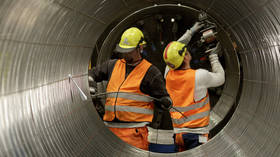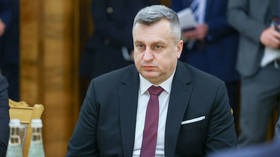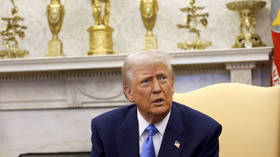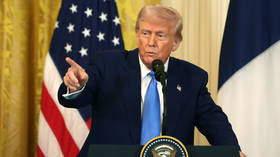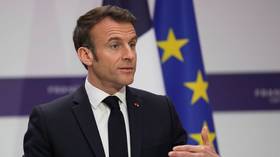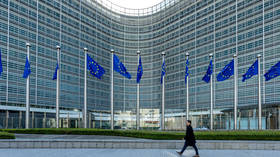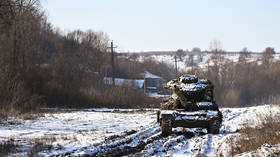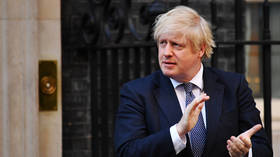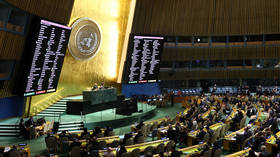Germany warns of Russian troop ‘concentration’
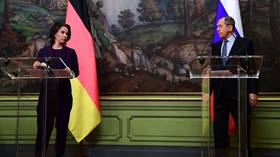
German Foreign Minister Annalena Baerbock used her first official trip to Moscow, earlier this week, to question the motives behind a purported buildup of Russian troops close to the frontier with neighboring Ukraine.
Speaking on Tuesday at a meeting in Moscow alongside her Russian counterpart Sergey Lavrov, Berlin’s top diplomat alleged that a large contingent of troops had been sent to the regions around the border with its Eastern European neighbor. She argued it was hard not to see such actions as a threat.
“In recent weeks, more than a hundred thousand Russian troops and military equipment have been concentrated near Ukraine for no apparent reason,” Baerbock said.
Countering the allegations of a troop build-up, Lavrov stressed that Moscow would not make concessions for military movements on its own territory, and that Russia has not engaged in any activity which could be seen as the pretext for a conflict to flare up.
He also said the Russian side had explained that the “escalation is now coming from the mouths of many Western politicians.” According to him, the country is merely maintaining “our own troops on our own territory and carrying out the necessary combat training measures, which all countries do.” He added that Russia “cannot accept any demands concerning our armed forces on our own soil.”
“We are not threatening anyone with anything, but we hear threats against us. I hope that all this reflects only some emotions that certain forces within the camp of Western countries are stirring up,” the veteran official said.
He continued, adding that Moscow “will be guided by concrete steps, by concrete actions, and depending on what concrete steps our partners will take, we will naturally determine our reaction.”
Despite the accusations that Moscow is building up its forces on its demarcation line with Ukraine, which a number of Western leaders have insisted in recent months is a precursor to a full-blown invasion, Lavrov called the talks with Germany’s new top diplomat “useful.”
Speaking to reporters, Lavrov said the discussion touched on several issues that are still “the subject of divergence in our positions,” but he remained hopeful that the two sides “can gradually move forward and overcome these differences for the good of our peoples and for the good of the tasks that the international community faces in various crisis points of the world.”
Another area of contention was the shuttering of RT DE’s German-language YouTube channels – a move that other Moscow officials have said was a political decision, and which Lavrov described as an “unpleasant situation.” However, Baerbock insisted that Berlin has not interfered in the dispute, and said that “RT DE is working in Germany, broadcasting over the internet.”
The Russian Union of Journalists also wrote to Baerbock ahead of the talks, decrying the move against RT Germany, arguing that it leads to “discrimination and stigmatization of our colleagues” in the country, and urging her to support measures to protect its journalists working there.
The two sides also discussed co-operation on energy, including the controversial Nord Stream 2 pipeline, which Berlin continued to support despite US sanctions. Lavrov slammed attempts to politicize the gas pipeline, calling it the “the largest commercial venture of the last decade.” He also added that the project is aimed at ensuring energy security throughout the European continent, as well as in Germany.
“We have drawn the attention of our German colleagues to the counter-productiveness of attempts to politicize this project,” the Russian diplomat said.
Nord Stream 2 was completed in September but is yet to be certified. Approval of the project was suspended in mid-November by the German Federal Network Agency over a regulatory issue. Kiev has taken credit for the delay, however, saying its fears Moscow could cut it off from billions of dollars in transit fees had played a role in the hold-up.
